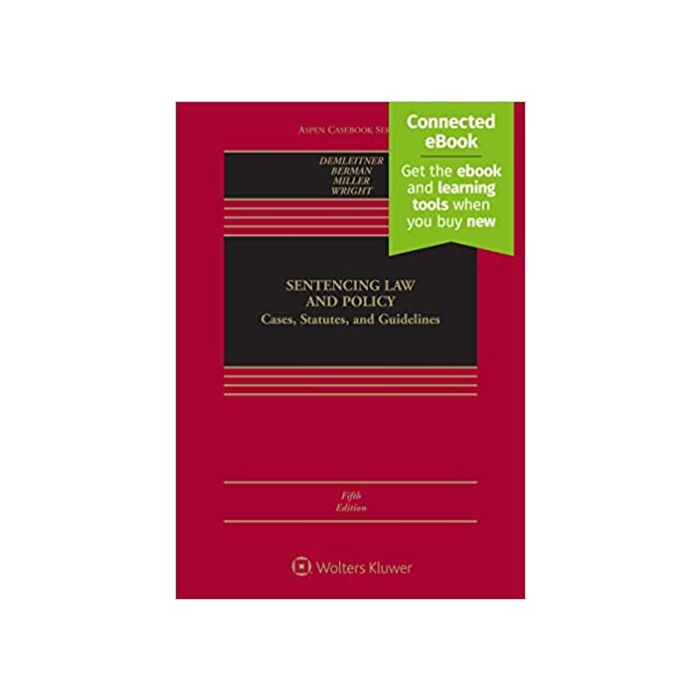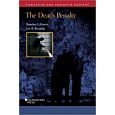Order by phone 1-866-808-5635 (M-F 10am - 4pm CST) Help/FAQs / LawRewards / Gift Certificates / Sell Us Your Law School Textbooks
-
Attorney
-
A-B
- A
- Accounting & Finance
- Administrative Law
- Admiralty Law
- Age & Gender Law
- Agency & Partnership Law
- Agricultural Law
- Alternative Dispute Resolution
- Animal Law
- Antitrust Law
- Appellate Advocacy
- Arbitration Law
- Art Law
- Audio Items
- Aviation & Space Law
- B
- Banking Law
- Bankruptcy Law
- Bar Exam Preparation
- Biotech Law
- Business Associations & Organizations
- Business Law
-
C-D
- C
- Civil Law
- Civil Procedure Law
- Civil Rights Law
- Class Action Law
- Commercial Law
- Commercial Paper
- Communications Law
- Community Property Law
- Comparative Law
- Conflict of Laws
- Constitutional Law
- Construction Law
- Consumer Law
- Contract Law
- Copyright Law
- Corporate Finance Law
- Corporate Tax Law
- Corporations Law
- Criminal Justice
- Criminal Law
- Criminal Procedure
- D
- Debtor-Creditor Law
- Defamation Law
- Disability Law
- Discrimination Law
- Divorce Law
- Domestic Relations Law
- Download Items
- Drug Law
-
E-F
- E
- Economics & Law
- Education Law
- Elder Law
- Election Law
- Employee Benefits & ERISA Law
- Employment Law
- Energy Law
- Entertainment Law
- Environmental Law
- Estate & Gift Tax Law
- Estates Law
- Evidence Law
- F
- Family Law
- Federal Courts & Jurisdiction
- Federal Income Tax Law
- Finance Law
- First Amendment Law
- First Year Law School Guides
- Flashcard Items
- Franchise Law
- Future Interests
-
G-J
- G
- Gambling Law
- General Legal Non-Fiction
- General Legal Reference
- Governmental Law
- Gun Law
- H
- Health & Health Care Law
- History & Law
- Housing Law
- Human Rights Law
- I
- Immigration Law
- Injunctions
- Insurance Law
- Intellectual Property Law
- International Business Transactions
- International Law
- Internet Law & Cyber Law
- J
- Jurisprudence
- Jury
- Juvenile Law
-
L-M
- L
- Labor Law
- Land Use Law
- Landlord & Tenant Law
- Law School Exam Guides
- Lawyering Skills
- Legal Career Guides
- Legal Dictionaries
- Legal Ethics
- Legal Malpractice
- Legal Philosophy
- Legal Practice Management
- Legal Research
- Legal Writing
- Legislation Law
- Litigation Law
- LSAT Exam Preparation
- M
- Maritime Law
- Mass Media Law
- Mediation Law
- Medical Liability Law
- Mergers & Acquisitions
- Military & Nat'l Security Law
- MPRE Exam Preparation
- Municipal Law
- Music Law
-
N-P
- N
- Native American Law
- Natural Resources Law
- Negotiable Instrument Law
- Non-Profit Organization Law
- O
- Oil & Gas Law
- P
- Partnerships & LLCs
- Paralegal Titles
- Patent Law
- Payment Systems Law
- Penal Law
- Personal Injury Law
- Pre-Law School Preparation
- Pre-Trial
- Privacy Law
- Probate Law
- Products Liability Law
- Professional Responsibility
- Property Law
-
R-Z
- R
- Real Estate Law
- Regulatory Law
- Religion & Law
- Remedies Law
- S
- Sales & Leases of Goods
- Secured Transactions
- Securities Regulation
- Sexual Orientation Law
- Software Items
- Sports Law
- T
- Transportation Law
- Tax Law
- Technology Law
- Tort Law
- Toxic Tort Law
- Trade Law
- Trademark Law
- Travel Law
- Trial Advocacy
- Trusts
- Trusts Law
- U
- U.C.C.
- W
- White Collar Crime
- Wills
- Z
- Zoning Law
-
A-B
-
Do-It-Yourself Law
-
A-B
- A
- Accounting & Finance
- Administrative Law
- Admiralty Law
- Age & Gender Law
- Agency & Partnership Law
- Alternative Dispute Resolution
- Animal Law
- Antitrust Law
- Appellate Advocacy
- Arbitration Law
- Art Law
- Audio Items
- Aviation Law
- B
- Banking Law
- Bankruptcy Law
- Bar Exam Preparation
- Biotech Law
- Business Associations & Organizations
- Business Law
-
C-D
- C
- Civil Procedure Law
- Civil Rights Law
- Class Action Law
- Commercial Law
- Commercial Paper
- Communications Law
- Community Property Law
- Comparative Law
- Conflict of Laws
- Constitutional Law
- Construction Law
- Consumer Law
- Contract Law
- Copyright Law
- Corporate Finance Law
- Corporate Tax Law
- Corporations Law
- Criminal Justice
- Criminal Law
- Criminal Procedure
- D
- Debtor-Creditor Law
- Disability Law
- Discrimination Law
- Divorce Law
- Domestic Relations Law
- Download Items
-
E-F
- E
- Economics & Law
- Education Law
- Elder Law
- Employee Benefits & ERISA Law
- Employment Law
- Energy Law
- Entertainment Law
- Environmental Law
- Estate & Gift Tax Law
- Estates Law
- Evidence Law
- F
- Family Law
- Federal Courts & Jurisdiction
- Federal Income Tax Law
- Finance Law
- First Amendment Law
- First Year Law School Guides
- Flashcard Items
- Franchise Law
- Future Interests
-
G-J
- G
- Gambling Law
- General Legal Non-Fiction
- General Legal Reference
- Governmental Law
- H
- Health & Health Care Law
- History & Law
- Human Rights Law
- I
- Immigration Law
- Injunctions
- Insurance Law
- Intellectual Property Law
- International Business Transactions
- International Law
- Internet Law & Cyber Law
- J
- Jurisprudence
- Juvenile Law
-
L-M
- L
- Labor Law
- Land Use Law
- Landlord & Tenant Law
- Law School Exam Guides
- Lawyering Skills
- Legal Career Guides
- Legal Dictionaries
- Legal Ethics
- Legal Philosophy
- Legal Practice Management
- Legal Research
- Legal Writing
- Legislation Law
- Litigation Law
- LSAT Exam Preparation
- M
- Maritime Law
- Mass Media Law
- Mediation Law
- Medical Liability Law
- Mergers & Acquisitions
- Military & Nat'l Security Law
- MPRE Exam Preparation
- Municipal Law
- Music Law
-
N-P
- N
- Native American Law
- Natural Resources Law
- Negotiable Instrument Law
- Non-Profit Organization Law
- O
- Oil & Gas Law
- P
- Partnerships & LLCs
- Patent Law
- Payment Systems Law
- Penal Law
- Personal Injury Law
- Pre-Law School Preparation
- Pre-Trial
- Privacy Law
- Probate Law
- Products Liability Law
- Professional Responsibility
- Property Law
-
R-Z
- R
- Real Estate Law
- Religion & Law
- Remedies Law
- S
- Sales & Leases of Goods
- Secured Transactions
- Securities Regulation
- Sexual Orientation Law
- Software Items
- Sports Law
- T
- Tax Law
- Technology Law
- Tort Law
- Toxic Tort Law
- Trade Law
- Trademark Law
- Travel Law
- Trial Advocacy
- Trusts
- Trusts Law
- U
- U.C.C.
- W
- White Collar Crime
- Wills
- Z
- Zoning Law
-
A-B
-
Law Student
-
A-B
- A
- Accounting & Finance
- Administrative Law
- Admiralty Law
- Age & Gender Law
- Agency & Partnership Law
- Agricultural Law
- Alternative Dispute Resolution
- Animal Law
- Antitrust Law
- Appellate Advocacy
- Arbitration Law
- Art Law
- Audio Items
- Aviation & Space Law
- B
- Banking Law
- Bankruptcy Law
- Bar Exam Preparation
- Biotech Law
- Business Associations & Organizations
- Business Law
-
C-D
- C
- Civil Law
- Civil Procedure Law
- Civil Rights Law
- Class Action Law
- Commercial Law
- Commercial Paper
- Communications Law
- Community Property Law
- Comparative Law
- Conflict of Laws
- Constitutional Law
- Construction Law
- Consumer Law
- Contract Law
- Copyright Law
- Corporate Finance Law
- Corporate Tax Law
- Corporations Law
- Criminal Justice
- Criminal Law
- Criminal Procedure
- D
- Debtor-Creditor Law
- Defamation Law
- Disability Law
- Discrimination Law
- Divorce Law
- Domestic Relations Law
- Download Items
- Drug Law
-
E-F
- E
- Economics & Law
- Education Law
- Elder Law
- Election Law
- Employee Benefits & ERISA Law
- Employment Law
- Energy Law
- Entertainment Law
- Environmental Law
- Estate & Gift Tax Law
- Estates Law
- Evidence Law
- F
- Family Law
- Federal Courts & Jurisdiction
- Federal Income Tax Law
- Finance Law
- First Amendment Law
- First Year Law School Guides
- Flashcard Items
- Franchise Law
- Future Interests
-
G-J
- G
- Gambling Law
- General Legal Non-Fiction
- General Legal Reference
- Governmental Law
- Gun Law
- H
- Health & Health Care Law
- History & Law
- Human Rights Law
- Housing Law
- I
- Immigration Law
- Injunctions
- Insurance Law
- Intellectual Property Law
- International Business Transactions
- International Law
- Internet Law & Cyber Law
- J
- Jurisprudence
- Jury
- Juvenile Law
-
L-M
- L
- Labor Law
- Land Use Law
- Landlord & Tenant Law
- Law School Exam Guides
- Lawyering Skills
- Legal Career Guides
- Legal Dictionaries
- Legal Ethics
- Legal Malpractice
- Legal Philosophy
- Legal Practice Management
- Legal Research
- Legal Writing
- Legislation Law
- Litigation Law
- LSAT Exam Preparation
- M
- Maritime Law
- Mass Media Law
- Mediation Law
- Medical Liability Law
- Mergers & Acquisitions
- Military & Nat'l Security Law
- MPRE Exam Preparation
- Municipal Law
- Music Law
-
N-P
- N
- Native American Law
- Natural Resources Law
- Negotiable Instrument Law
- Non-Profit Organization Law
- O
- Oil & Gas Law
- P
- Paralegal Titles
- Partnerships & LLCs
- Patent Law
- Payment Systems Law
- Penal Law
- Personal Injury Law
- Pre-Law School Preparation
- Pre-Trial
- Privacy Law
- Probate Law
- Products Liability Law
- Professional Responsibility
- Property Law
-
R-Z
- R
- Real Estate Law
- Regulatory Law
- Religion & Law
- Remedies Law
- S
- Sales & Leases of Goods
- Secured Transactions
- Securities Regulation
- Sexual Orientation Law
- Software Items
- Sports Law
- T
- Tax Law
- Technology Law
- Tort Law
- Toxic Tort Law
- Trade Law
- Trademark Law
- Transportation Law
- Travel Law
- Trial Advocacy
- Trusts
- Trusts Law
- U
- U.C.C.
- W
- White Collar Crime
- Wills
- Z
- Zoning Law
-
A-B
-
Paralegal
-
A-B
- A
- Accounting & Finance
- Administrative Law
- Admiralty Law
- Age & Gender Law
- Agency & Partnership Law
- Alternative Dispute Resolution
- Animal Law
- Antitrust Law
- Appellate Advocacy
- Arbitration Law
- Art Law
- Audio Items
- Aviation Law
- B
- Banking Law
- Bankruptcy Law
- Bar Exam Preparation
- Biotech Law
- Business Associations & Organizations
- Business Law
-
C-D
- C
- Civil Procedure Law
- Civil Rights Law
- Class Action Law
- Commercial Law
- Commercial Paper
- Communications Law
- Community Property Law
- Comparative Law
- Conflict of Laws
- Constitutional Law
- Construction Law
- Consumer Law
- Contract Law
- Copyright Law
- Corporate Finance Law
- Corporate Tax Law
- Corporations Law
- Criminal Justice
- Criminal Law
- Criminal Procedure
- D
- Debtor-Creditor Law
- Disability Law
- Discrimination Law
- Divorce Law
- Domestic Relations Law
- Download Items
-
E-F
- E
- Economics & Law
- Education Law
- Elder Law
- Employee Benefits & ERISA Law
- Employment Law
- Energy Law
- Entertainment Law
- Environmental Law
- Estate & Gift Tax Law
- Estates Law
- Evidence Law
- F
- Family Law
- Federal Courts & Jurisdiction
- Federal Income Tax Law
- Finance Law
- First Amendment Law
- First Year Law School Guides
- Flashcard Items
- Franchise Law
- Future Interests
-
G-J
- G
- Gambling Law
- General Legal Non-Fiction
- General Legal Reference
- Governmental Law
- H
- Health & Health Care Law
- History & Law
- Human Rights Law
- I
- Immigration Law
- Injunctions
- Insurance Law
- Intellectual Property Law
- International Business Transactions
- International Law
- Internet Law & Cyber Law
- J
- Jurisprudence
- Juvenile Law
-
L-M
- L
- Labor Law
- Land Use Law
- Landlord & Tenant Law
- Law School Exam Guides
- Lawyering Skills
- Legal Career Guides
- Legal Dictionaries
- Legal Ethics
- Legal Philosophy
- Legal Practice Management
- Legal Research
- Legal Writing
- Legislation Law
- Litigation Law
- LSAT Exam Preparation
- M
- Maritime Law
- Mass Media Law
- Mediation Law
- Medical Liability Law
- Mergers & Acquisitions
- Military & Nat'l Security Law
- MPRE Exam Preparation
- Municipal Law
- Music Law
-
N-P
- N
- Native American Law
- Natural Resources Law
- Negotiable Instrument Law
- Non-Profit Organization Law
- O
- Oil & Gas Law
- P
- Partnerships & LLCs
- Patent Law
- Payment Systems Law
- Penal Law
- Personal Injury Law
- Pre-Law School Preparation
- Pre-Trial
- Privacy Law
- Probate Law
- Products Liability Law
- Professional Responsibility
- Property Law
-
R-Z
- R
- Real Estate Law
- Religion & Law
- Remedies Law
- S
- Sales & Leases of Goods
- Secured Transactions
- Securities Regulation
- Sexual Orientation Law
- Software Items
- Sports Law
- T
- Tax Law
- Technology Law
- Tort Law
- Toxic Tort Law
- Trade Law
- Trademark Law
- Travel Law
- Trial Advocacy
- Trusts
- Trusts Law
- U
- U.C.C.
- W
- White Collar Crime
- Wills
- Z
- Zoning Law
-
A-B
-
Pre-Law Student
-
A-B
- A
- Accounting & Finance
- Administrative Law
- Admiralty Law
- Age & Gender Law
- Agency & Partnership Law
- Alternative Dispute Resolution
- Animal Law
- Antitrust Law
- Appellate Advocacy
- Arbitration Law
- Art Law
- Audio Items
- Aviation Law
- B
- Banking Law
- Bankruptcy Law
- Bar Exam Preparation
- Biotech Law
- Business Associations & Organizations
- Business Law
-
C-D
- C
- Civil Procedure Law
- Civil Rights Law
- Class Action Law
- Commercial Law
- Commercial Paper
- Communications Law
- Community Property Law
- Comparative Law
- Conflict of Laws
- Constitutional Law
- Construction Law
- Consumer Law
- Contract Law
- Copyright Law
- Corporate Finance Law
- Corporate Tax Law
- Corporations Law
- Criminal Justice
- Criminal Law
- Criminal Procedure
- D
- Debtor-Creditor Law
- Disability Law
- Discrimination Law
- Divorce Law
- Domestic Relations Law
- Download Items
-
E-F
- E
- Economics & Law
- Education Law
- Elder Law
- Employee Benefits & ERISA Law
- Employment Law
- Energy Law
- Entertainment Law
- Environmental Law
- Estate & Gift Tax Law
- Estates Law
- Evidence Law
- F
- Family Law
- Federal Courts & Jurisdiction
- Federal Income Tax Law
- Finance Law
- First Amendment Law
- First Year Law School Guides
- Flashcard Items
- Franchise Law
- Future Interests
-
G-J
- G
- Gambling Law
- General Legal Non-Fiction
- General Legal Reference
- Governmental Law
- H
- Health & Health Care Law
- History & Law
- Human Rights Law
- I
- Immigration Law
- Injunctions
- Insurance Law
- Intellectual Property Law
- International Business Transactions
- International Law
- Internet Law & Cyber Law
- J
- Jurisprudence
- Juvenile Law
-
L-M
- L
- Labor Law
- Land Use Law
- Landlord & Tenant Law
- Law School Exam Guides
- Lawyering Skills
- Legal Career Guides
- Legal Dictionaries
- Legal Ethics
- Legal Philosophy
- Legal Practice Management
- Legal Research
- Legal Writing
- Legislation Law
- Litigation Law
- LSAT Exam Preparation
- M
- Maritime Law
- Mass Media Law
- Mediation Law
- Medical Liability Law
- Mergers & Acquisitions
- Military & Nat'l Security Law
- MPRE Exam Preparation
- Municipal Law
- Music Law
-
N-P
- N
- Native American Law
- Natural Resources Law
- Negotiable Instrument Law
- Non-Profit Organization Law
- O
- Oil & Gas Law
- P
- Partnerships & LLCs
- Patent Law
- Payment Systems Law
- Penal Law
- Personal Injury Law
- Pre-Law School Preparation
- Pre-Trial
- Privacy Law
- Probate Law
- Products Liability Law
- Professional Responsibility
- Property Law
-
R-Z
- R
- Real Estate Law
- Religion & Law
- Remedies Law
- S
- Sales & Leases of Goods
- Secured Transactions
- Securities Regulation
- Sexual Orientation Law
- Software Items
- Sports Law
- T
- Tax Law
- Technology Law
- Tort Law
- Toxic Tort Law
- Trade Law
- Trademark Law
- Travel Law
- Trial Advocacy
- Trusts
- Trusts Law
- U
- U.C.C.
- W
- White Collar Crime
- Wills
- Z
- Zoning Law
-
A-B
- Menu
- Account
-
Attorney
-
A-B
- A
- B
-
C-D
-
C
- Civil Law
- Civil Procedure Law
- Civil Rights Law
- Class Action Law
- Commercial Law
- Commercial Paper
- Communications Law
- Community Property Law
- Comparative Law
- Conflict of Laws
- Constitutional Law
- Construction Law
- Consumer Law
- Contract Law
- Copyright Law
- Corporate Finance Law
- Corporate Tax Law
- Corporations Law
- Criminal Justice
- Criminal Law
- Criminal Procedure
- D
-
C
-
E-F
- E
- F
-
G-J
- G
- H
- I
- J
-
L-M
- L
- M
-
N-P
- N
- O
- P
-
R-Z
- R
- S
- T
- U
- W
- Z
-
A-B
-
Do-It-Yourself Law
-
A-B
- A
- B
-
C-D
-
C
- Civil Procedure Law
- Civil Rights Law
- Class Action Law
- Commercial Law
- Commercial Paper
- Communications Law
- Community Property Law
- Comparative Law
- Conflict of Laws
- Constitutional Law
- Construction Law
- Consumer Law
- Contract Law
- Copyright Law
- Corporate Finance Law
- Corporate Tax Law
- Corporations Law
- Criminal Justice
- Criminal Law
- Criminal Procedure
- D
-
C
-
E-F
- E
- F
-
G-J
- G
- H
- I
- J
-
L-M
- L
- M
-
N-P
- N
- O
- P
-
R-Z
- R
- S
- T
- U
- W
- Z
-
A-B
-
Law Student
-
A-B
- A
- B
-
C-D
-
C
- Civil Law
- Civil Procedure Law
- Civil Rights Law
- Class Action Law
- Commercial Law
- Commercial Paper
- Communications Law
- Community Property Law
- Comparative Law
- Conflict of Laws
- Constitutional Law
- Construction Law
- Consumer Law
- Contract Law
- Copyright Law
- Corporate Finance Law
- Corporate Tax Law
- Corporations Law
- Criminal Justice
- Criminal Law
- Criminal Procedure
- D
-
C
-
E-F
- E
- F
-
G-J
- G
- H
- I
- J
-
L-M
- L
- M
-
N-P
- N
- O
- P
-
R-Z
- R
- S
- T
- U
- W
- Z
-
A-B
-
Paralegal
-
A-B
- A
- B
-
C-D
-
C
- Civil Procedure Law
- Civil Rights Law
- Class Action Law
- Commercial Law
- Commercial Paper
- Communications Law
- Community Property Law
- Comparative Law
- Conflict of Laws
- Constitutional Law
- Construction Law
- Consumer Law
- Contract Law
- Copyright Law
- Corporate Finance Law
- Corporate Tax Law
- Corporations Law
- Criminal Justice
- Criminal Law
- Criminal Procedure
- D
-
C
-
E-F
- E
- F
-
G-J
- G
- H
- I
- J
-
L-M
- L
- M
-
N-P
- N
- O
- P
-
R-Z
- R
- S
- T
- U
- W
- Z
-
A-B
-
Pre-Law Student
-
A-B
- A
- B
-
C-D
-
C
- Civil Procedure Law
- Civil Rights Law
- Class Action Law
- Commercial Law
- Commercial Paper
- Communications Law
- Community Property Law
- Comparative Law
- Conflict of Laws
- Constitutional Law
- Construction Law
- Consumer Law
- Contract Law
- Copyright Law
- Corporate Finance Law
- Corporate Tax Law
- Corporations Law
- Criminal Justice
- Criminal Law
- Criminal Procedure
- D
-
C
-
E-F
- E
- F
-
G-J
- G
- H
- I
- J
-
L-M
- L
- M
-
N-P
- N
- O
- P
-
R-Z
- R
- S
- T
- U
- W
- Z
-
A-B
Order by phone 1-866-808-5635 (M-F 9am-5pm CST)
Sentencing Law and Policy: Cases, Statutes, and Guidelines (w/ Connected eBook)
- Edition : 5th ed., 2022
- Author(s) : Demleitner, Berman, et al.
Log in or create an account to get 254 LawReward points on this purchase!
-
Sentencing Law and Policy: Cases, Statutes, and Guidelines (w/ Connected eBook)
- ISBN: 9781543847444
- SKU: 93250
- Condition: New
- Format: Hardcover/Access Code
$254.10
List Price: $363.00
- This item ships within one business day.
-
Sentencing Law and Policy: Cases, Statutes, and Guidelines (w/ Connected eBook) (Instant Digital Access Code Only)
- SKU: 93250E
- Format: Digital Access Code Only
- Instant Access!
Purchase or rental of a new Connected eBook includes a new print textbook PLUS a full ebook version of your text; outlining and case briefing tools; and other resources.
Order now to get INSTANT ACCESS to the ebook and other digital tools — just redeem the access code sent in your order confirmation email!
The new fifth edition of Sentencing Law & Policy: Cases, Statutes, and Guidelines gives students a comprehensive overview of modern sentencing practices in all major types of systems: determinate and indeterminate, discretionary, and structured, federal and state, capital and non-capital. Authored by leading scholars in the fields of sentencing and criminal procedure, this casebook surveys the legal doctrine and depicts major sentencing institutions at work, including legislatures, commissions, judges, prosecutors, defense attorneys, probation officers, parole boards, and others. The book motivates students to connect legal practices with current policy and equity debates that reshape criminal sentencing. The new edition includes extensive materials on emerging topics like the work of progressive prosecutors, the use of risk assessment tools, and the impacts of the COVID pandemic.
New to the Fifth Edition:
- Thoroughly updated to address important statutory and case law changes, including important new legislation, such as the FIRST STEP Act, leading U.S. Supreme Court, U.S. Court of Appeals, state appellate court decisions, and prominent recent scholarship.
- Coverage of modern policy issues, including mass incarceration, prosecutorial and judicial discretion, punishment for drug crimes, revised federal and state sentencing guidelines, and concerns about racial and other disparities in sentencing.
- Additions give focused attention to new topics of particular interest to sentencing advocates and practitioners such as the policies of progressive prosecutors, the development and use of risk assessment tools at sentencing, and the impacts of the COVID pandemic on sentencing and corrections. A new final chapter considers sentencing review doctrines and pays special attention to new laws and advocacy surrounding “second look” sentencing mechanisms. It also questions the role of executive clemency in the criminal system.
Order now to get INSTANT ACCESS to the full ebook version of the text; outlining and case briefing tools; and other resources — just redeem the access code sent in your order confirmation email!
Sentencing Law and Policy: Cases, Statutes, and Guidelines, Fifth Edition, provides comprehensive coverage of all aspects of sentencing law, policy and practice.
The new fifth edition of Sentencing Law & Policy: Cases Statutes and Guidelines gives students a comprehensive overview of modern sentencing practices in all major types of systems: determinate and indeterminate, discretionary, and structured, federal and state, capital and non-capital. Authored by leading scholars in the fields of sentencing and criminal procedure, this casebook surveys the legal doctrine and depicts major sentencing institutions at work, including legislatures, commissions, judges, prosecutors, defense attorneys, probation officers, parole boards, and others. The book motivates students to connect legal practices with current policy and equity debates that reshape criminal sentencing. The new edition includes extensive materials on emerging topics like the work of progressive prosecutors, the use of risk assessment tools, and the impacts of the COVID pandemic.
New to the Fifth Edition:
- Thoroughly updated to address important statutory and case law changes, including important new legislation, such as the FIRST STEP Act, leading U.S. Supreme Court, U.S. Court of Appeals, state appellate court decisions, and prominent recent scholarship.
- Coverage of modern policy issues, including mass incarceration, prosecutorial and judicial discretion, punishment for drug crimes, revised federal and state sentencing guidelines, and concerns about racial and other disparities in sentencing.
- Additions give focused attention to new topics of particular interest to sentencing advocates and practitioners such as the policies of progressive prosecutors, the development and use of risk assessment tools at sentencing, and the impacts of the COVID pandemic on sentencing and corrections. A new final chapter considers sentencing review doctrines and pays special attention to new laws and advocacy surrounding “second look” sentencing mechanisms. It also questions the role of executive clemency in the criminal system.
Related Products
-
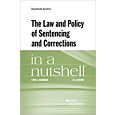
Law in a Nutshell: The Law and Policy of Sentencing and Corrections
List Price $62.00 Our Low Price $59.52 -
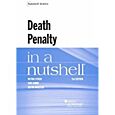
Law in a Nutshell: Death Penalty Law
List Price $62.00 Our Low Price $59.52 -
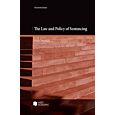
The Law and Policy of Sentencing
List Price $230.00 Our Low Price $223.10

